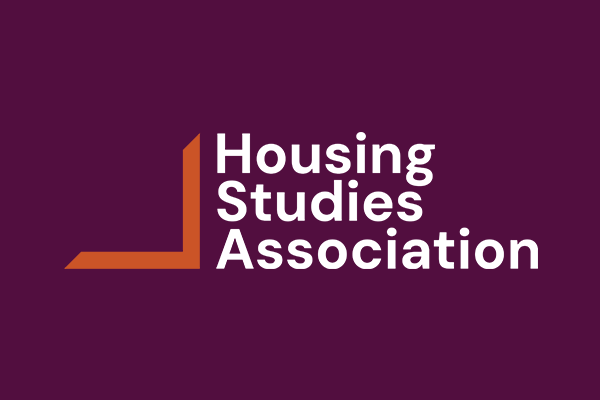
The Housing Studies journal is currently seeking submissions for a new Special Issue led by Ozlem Celik (Helsinki Institute of Sustainability Science, University of Helsinki) titled 'Cracking financialisation: housing, crisis, struggles and rights.
The Special Issue aims to provide an assessment of the impact of the financialisation of housing on the violation of the right to housing across the globe. It seeks to bring together distinct literatures on financialisation and the ‘right to housing’ through a focus on housing struggles. It invites contributions on the theoretical and empirical specificities of the dynamics, strategies and implications of the role of housing struggles at different localities under the pressure of housing financialisation. It encourages interdisciplinary work, both in theory and method, and is particularly interested in papers which make a contribution to cases and geographies that have been relatively understudied.
The 2008 financial crisis opened up discussion on the role of finance in the production of the built environment in general and housing, in particular. Financialisation has emerged to become part of mainstream conceptualisation (Fields, 2017a) in a similar vein to neoliberalisation and globalisation. However, it remains a contested concept and there are notable gaps in understanding, particularly in relation to grounded realities and bottom up struggles in response to related disruptions and change. Financialisation of housing and violation of housing rights stand as two separate strands in the existing literature.
Analysis of the financialisation of housing tends to be dominated by a focus on demand and supply of finance to both housing consumers and producers. The supply-side analysis of financialisation of housing has focused on the development of new financial agents and tools by investigating changing funding mechanisms for real estate systems, mortgage loans and securitization (Aalbers 2012, 2016, 2017; Dos Santos Pereira, 2017; Fernandez and Aalbers, 2019; Sanfelici and Harbert, 2016), growth strategies of real estate developers (Sanfelici and Harbert, 2016; Rounet and Halbert, 2016), new national and international programmes for affordable housing production (Gibb, 2015; Klink and Denaldi, 2014; Pereira, 2017), post-disaster redevelopment programmes (Gotham, 2014), international slum upgrading programmes (Gruffydd Jones, 2012) and the role of the state (Gotham, 2009; Yesilbag, 2019). The demand-side analysis of financialisation of housing has emphasised the financialisation of homeownership (Rolnik, 2013; Palomera, 2014; Soedeberg, 2015), the role of homeownership culture (Palomera, 2014), and the marketisation of housing rights of the poor (Rolnik, 2013; Soedeberg, 2015). These literatures are providing important contributions on the housing question from a perspective of political economy. However, a narrow focus on money has tended to prevail; rather than a broader political economy analysis of land and land rent (Aalbers and Haila, 2018; Topalov, 1985; Harvey, 1985) or analysis of class relations (Clarke and Ginsburg, 1976).
The financial-led transformation of housing provision at different localities share similarities not only in the ways in which housing provision is becoming financialised, but also in creating tensions and conflicts between dwellers, the state, investors and builders. The ongoing consequences of the financialisation of housing were manifested most markedly at the global level in the 2008 crisis, through which impacts unfolded across the world via rising dispossession, evictions, displacement and homelessness. The disruptive impacts of housing-financial crisis contested the idea of homeownership, which is based on an understanding of home as a commodity, rather than a need of shelter for everyone (Madden and Marcuse 2016). While community mobilisation in housing struggles is not new, the housing-financial crisis expanded the strategies and tactics of residents, activists and the movements that question and challenge the violations of rights.
The violation of housing rights has been spotlighted in recent years by the research of United Nations Special Rapporteurs on Adequate Housing (Farha, 2017; Rolnik, 2018) and in the reports of the Centre on Housing Rights and Evictions (2010), which have focused on displacement and eviction as a result of gentrification, privatisation and the new financial tools. Right to housing movements are rooted in earlier critical discussions primarily focused on the structure of the movements (della Porta and Mosca, 2009), their goals and achievements (Kuymulu, 2013) - from social movements (Mayer, 2009a and 2009b) or collective human rights (Harvey, 2008) perspectives. While there is a significant literature on the right to housing movements, including a recent Special Issue of Housing Studies focusing on activism in different contexts (Polanska et. al., 2019), an empirical and theoretical analysis of the intended or unintended impact of movements under the pressure of financialisation of housing remains limited (Martinez, 2019). This Special Issue is premised on the potential of a focus on housing struggles to serve as a means of grounding more abstract debates about financialisation within the concretized urban environment and social relations.
A notable recent development has been the emergence of a literature looking more directly at the impacts of financialisation on the violation of housing rights at the individual and collective level. This literature has focused on the lived experience of financialisation of land and housing (Garcia-Lamarca and Kaika, 2016; Kaika and Ruggiero, 2016; Rolnik, 2019). This has included attention to the biopolitics of debt via mortgage contracts’ direct impact on social reproduction (Garcia-Lamarca and Kaika, 2016) and the creation of new form of tenure insecurity (Rolnik, 2019). It has served to reveal how moments of crisis carry the potential for more radical strategies of working classes to disrupt the hegemonic forms of housing provision (Fields, 2017a) by the formation of new political subjectivities, which are creating alternatives (di Felicantonio, 2017; Garcia Lamarca, 2017; Martinez, 2019; O’Callaghan, et. al., 2018; Rutland, 2013) and demands (Fields, 2014; 2017b; Schipper, 2015) of a cross-class alliance (Shin, 2018).
Despite the growing interest in the issue of financialisation of housing and the violation of housing rights at the individual and collective level, a key gap remains within this literature; the absence of research bridging the gap between analysis of the structural changes in housing provision shaped by financialisation, and the potentials and limitations of housing movements emerging as a response to austerity measures since the economic crisis or resisting processes of displacement, forced-eviction and mortgage-based homeownership schemes. As a result, a number of key questions remain unanswered. This Special Issue will explore this territory. An indicative, but by no means exhaustive, list of questions that might be addressed by contributions to the Special Issue includes:
- How can the impact of financialisation of housing on housing rights be conceptualised and theorised? What is the contribution of different disciplines in theorising the violation of housing rights at the time of financialisation?
- What are the differences and commonalities between cities’ experiences across the globe with the financialisation of housing rights?
- What is the role of the state in creating response to right to housing movements under the pressure of financialisation of housing?
- What are the political outcomes of right to housing movements at the time of financialisation? What are the impacts of financialisation on existing housing movements?
- How might theorisations of financialisation be developed by connecting higher level abstractions to localised struggles and relations?
- In what ways modes of circulation of finance capital in housing is shifting towards violation of housing rights? How does the expansion of the repayment crisis of mortgages responded by social movements?
- What is the capacity of activism to have a significant impact on the violation of housing rights? What is the role of activism in the decision-making processes and new alliances?
The proposed papers are expected to respond one or more of the questions above.
This Special Issue aims to bring together a set of papers that examine financialisation of housing and violation of housing rights at the time of crisis by exploring the contemporary state of neoliberal urbanisation in divergent political economic contexts. Looking at advanced economies under financialisation, in the cases of Global North and emerging economies in the Global South, will provide knowledge sharing on how financialisation as a systemic process produces variegated outcomes in different locations. However, the commonalities shared across the globe will be highlighted by the experiences of people on the urban margins: facing displacement, forced migration, limitations on poor people’s access to affordable housing, and risk of long-term indebtedness.
The Special Issue will demonstrate the variegated forms of financialisation of housing and its impact on the violation of housing rights at different localities by putting an emphasis on the role of movements against the process. It will reveal how modes of circulation of finance capital in housing created a fertile space of movements at different scales to flourish. While in many contexts, financialisation of housing is portrayed as an unavoidable process, the Special Issue will provide new questions for further research on understanding the potentials of resistance against the violation of housing rights.
Submission Instructions
We invite abstract submissions for a Special Issue of Housing Studies (to be published in 2021) that seeks to examine financialisation of housing and violation of housing rights at the time of crisis by exploring the contemporary state of neoliberal urbanisation in divergent political economic contexts. The Special Issue encourages housing scholars from different disciplinary backgrounds and methodological standpoints using critical approaches to unpack two contested concepts: financialisation and housing rights.
Titles and abstracts (300 words max.), along with full contact details, should be submitted to Ozlem Celik ([email protected]) no later than April 13th 2020.
Indicative Schedule
- Deadline for abstracts: 13th April 2020
- Selection of abstracts: 30th April 2020
- Deadline for first drafts to Guest Editor: 3rd August 2020
- Guest Editor comments to authors: 15th September 2020
- Deadline for submission to Housing Studies: 30th October 2021
- Peer review comments to authors: 1st February 2021
- Deadline for second drafts: 30th April 2021 Peer review comments: 30th June 2021
- Final submission of papers: 15th September 2021








